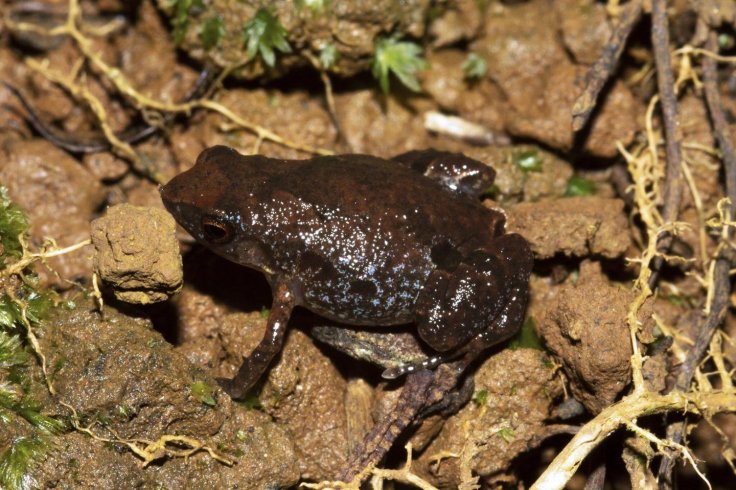A new species of miniaturised stump-toed frog of the genus Stumpffia, found on the island of Madagascar, is named Stumpffia froschaueri —after "the man from the floodplain full of frogs"— is set to be designated as Critically Endangered.
Christoph Froschauer, the man after whom the frog is named was a printer from Zürich renowned for being the first, and most well known in Europe, for printing the "Zürich Bible" and "Historia animalium"
A Frog-related Family Name
Christoph Froschauer's (ca. 1490 - April 1564) family name means "the man from the floodplain full of frogs", and the printer used to sign his books with a woodcut, showing frogs under a tree in a landscape. Amongst his publications are works by Zwingli, Bullinger, Gessner, Erasmus von Rotterdam and Luther, and as a gift for his art, the printer was given citizenship in Zürich in 1519. Now, scientists have also honoured Froschauer's great contributions by naming a new frog species after him.
The discovery, made by an international team of scientists from CIBIO (Research Centre in Biodiversity and Genetic Resources) of the University of Porto, Zoological Society of London, University of Lisbon, University of Brighton, University of Bristol, University of Antananarivo and Museo Regionale di Scienze Naturali, is published in the open-access peer-reviewed journal ZooKeys.

The new species is reliably known only from a few specimens collected in three forest patches of the Sahamalaza region, an area severely threatened by fire, drought and high levels of forest clearance.
"In Anketsakely and Ankarafa this species has been found only in areas with relatively undisturbed forest, and active individuals were found during the day within the leaf-litter on the forest floor, where discreet calling males were also detected", shares lead author Dr. Angelica Crottini from CIBIO.
Lack of Forest Border Patrols
Even though two out of the three forest patches where Stumpffia froschaueri occurs are now part of a UNESCO Biosphere Reserve, there is a lack in forest border patrols and the area remains under strong pressure from slash-and-burn activities and timber harvesting.
Habitat loss and fragmentation are likely to represent a huge threat to the species' survival and cause population declines, unless remedial actions to enforce the protection of these habitats are taken. The scientists suggest to classify Stumpffia froschaueri as a Critically Endangered species according to criteria of the IUCN Red List.
"We here reiterate the need to continue with field survey activities, giving particular attention to small and marginal areas, where several microendemic candidate species are likely waiting to be discovered and formally described. This description confirms the Sahamalaza Peninsula as an important hotspot of amphibian diversity, with several threatened species relying almost entirely on the persistence of these residual forest fragments", concludes Dr. Crottini.
(With inputs from agencies)









